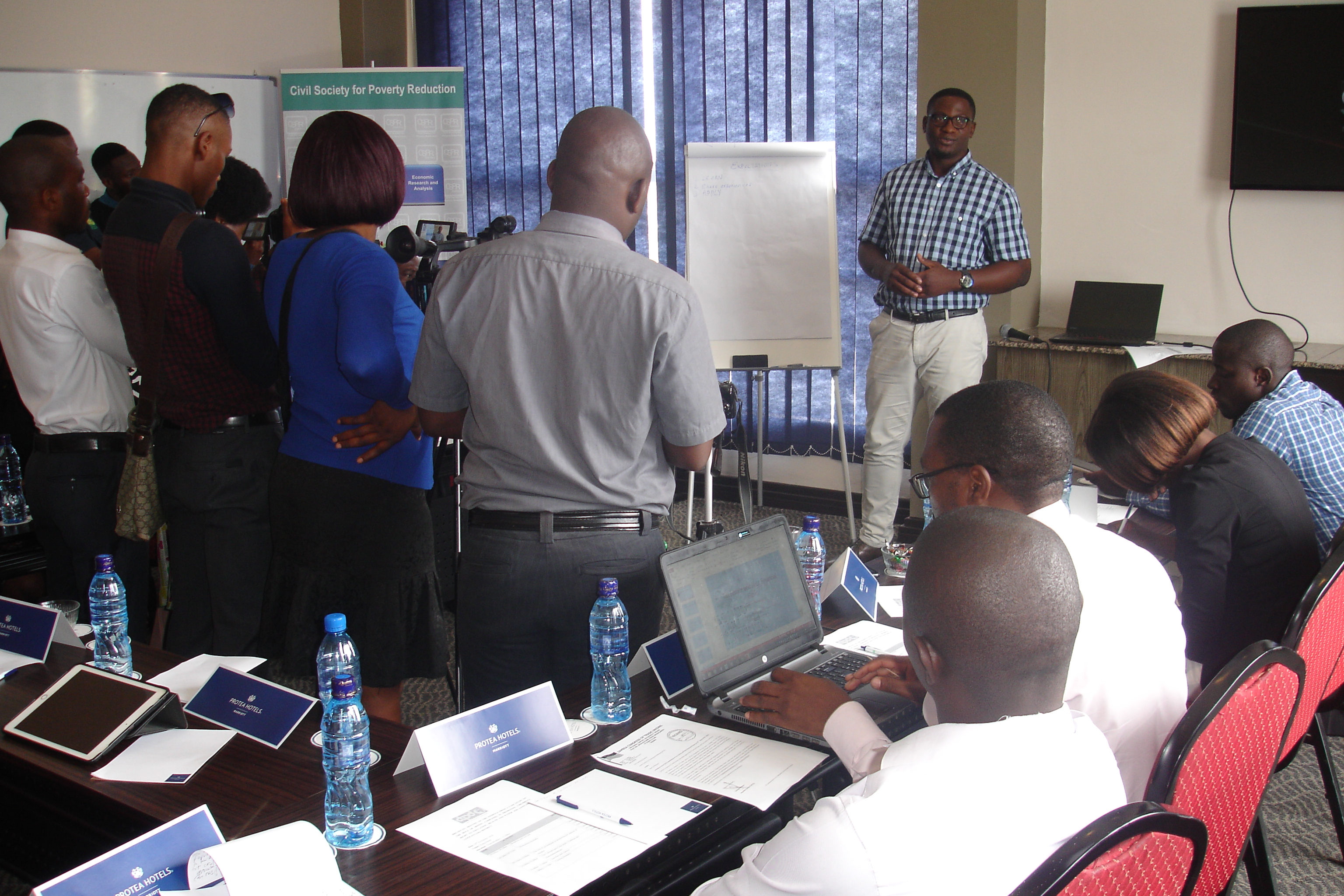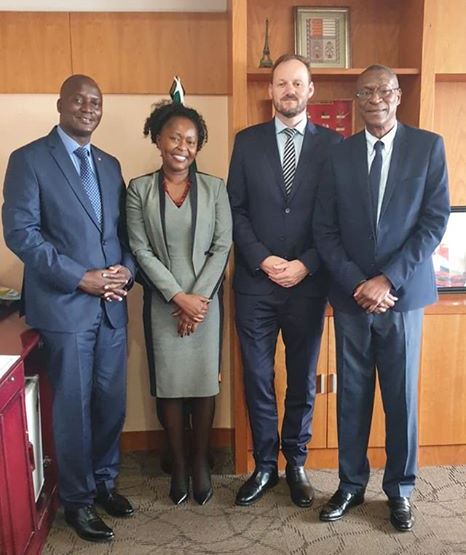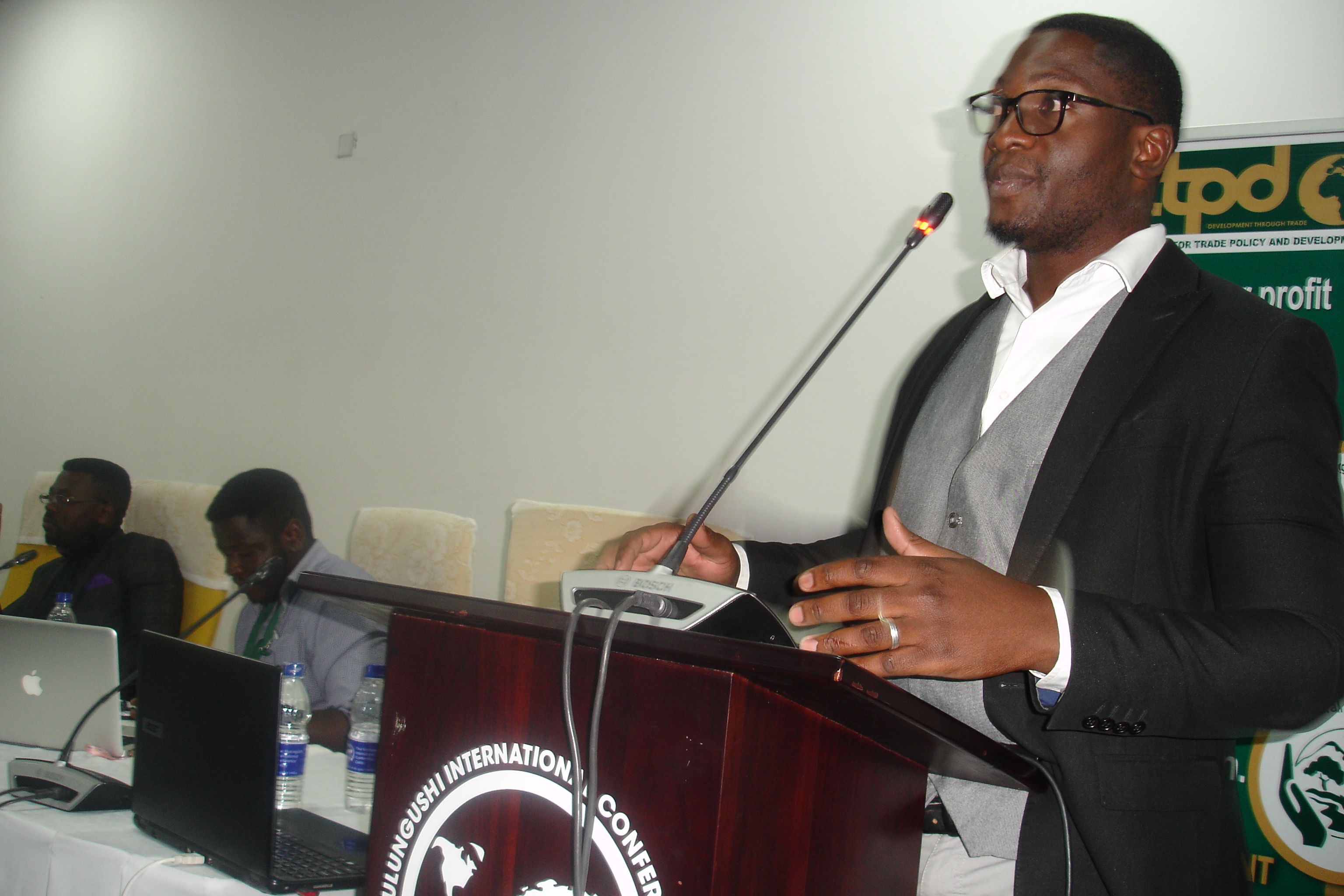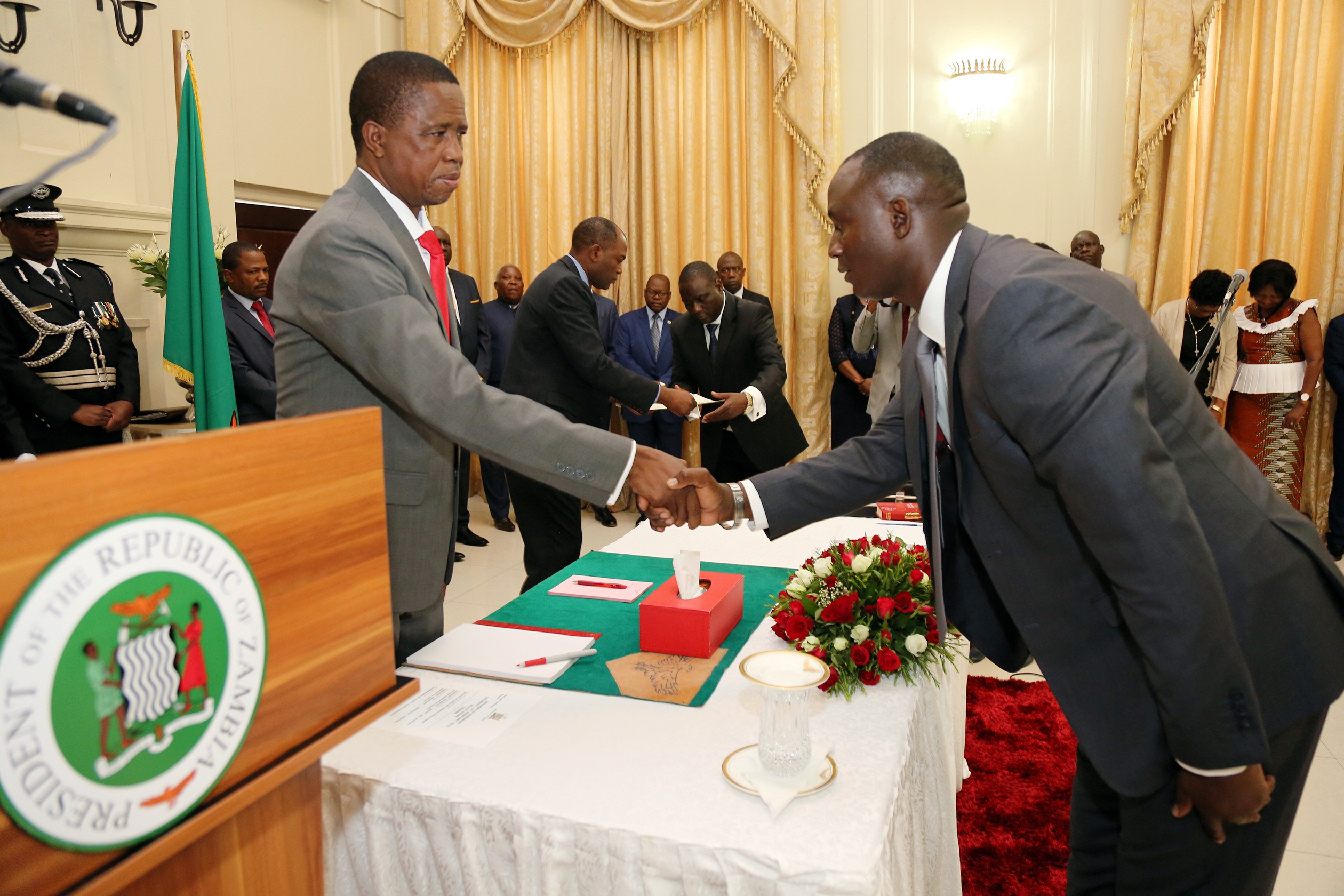Saturday 12th July 2020 CTPD seeks reform of Zambia’s Artisanal and small-scale Gold Mining Taxation
Notice: Undefined index: catFilterList in /home/zambi/public_html/wp-content/plugins/wp-likes/api.php on line 243
Contact: Mwaka Nyimbili
Centre for Trade Policy and Development
Phone: +260 211 264409|+260975876038
Fax: +260 211266234
Plot 123, Kudu Road Kabulonga www.ctpd.org.zm

Centre for Trade Policy Development Executive Director Isaac Mwaipopo Protea Arcades Towers Hotel Lusaka Tue 27 Nov 2018
FOR IMMEDIATE RELEASE
Date: 12/07/20
Saturday 12th July 2020 CTPD seeks reform of Zambia’s Artisanal and small-scale Gold Mining Taxation
MINING remains the backbone of Zambia’s economy accounting for 12% of gross domestic product, 28% of domestic revenue generation, and over 50,000 jobs both directly and indirectly.
The proliferation of extracting maximal benefits from Zambia’s mining sector depends on the robust design of mining taxation.
A robust mining taxation regime should raise sufficient revenue for the Government but at the same time provide fiscal space for mining companies to continue in operation.
This involves determining a sweet fiscal spot that attains this balance. It is worth mentioning that achieving this is no easy task.
The current mining taxation system does not differentiate between large and small scale operators.
This has led to overtaxing of the latter.
It is important to be alive to the fact that artisanal and small-scale mining is increasingly being seen as a source of hope for many Zambians that cannot get jobs in the formal sector.
To this extent, the Government needs to put systems in place that will ensure the maximum benefit of the Zambian people from artisanal and small-scale mining. These systems should include a taxation regime with a low fiscal burden to encourage growth.

Centre for Trade Policy Development Executive Director Isaac Mwaipopo Protea Arcades Towers Hotel Lusaka Tue 27 Nov 2018p
Recently, the Government has declared Gold as a strategic mineral. This means it must induce macro-economic stability by propping up the national reserves at the Bank of Zambia (BoZ) and reducing poverty through the vehicle of artisanal and small-scale mining.
ZCCM-IH plans to collect a target of 40,000 Kgs of gold from artisanal and small-scale miners as well as other sources.
However, this objective cannot be attained if the artisanal and small-scale miners are highly taxed.

Mines and Minerals Development Ministry Permanent Secretary Barnaby B. Mulenga with Minister Richard Musukwa
The Centre for Trade Policy and Development (CTPD) wishes to put it on record that the current high tax burden has the potential to reverse the formalization process.
This is because artisanal and small-scale miners will shy away from stepping into the formalization space to prevent their hard-earned gold production being taxed away.

British High Commissioner to Zambia Nicholas Woolley with Mines and Minerals Development Minister Richard Musukwa on Tuesday 18th February 2020
CTPD is currently undertaking a study on artisanal and small-scale gold mining taxation.
The study this far reveals that the current fiscal instruments generate an Average Effective Tax Rate (AETR) and Marginal Effective Tax Rate (METR) of 71% and 113%, respectively.
These statistics clearly show that the artisanal and small-scale gold mining sector is highly taxed.
The Zambian Government is in a process of Reforming the Mines and Minerals Act.
Contact: Mwaka Nyimbili
Centre for Trade Policy and Development
Phone: +260 211 264409|+260975876038
Fax: +260 211266234
Plot 123, Kudu Road Kabulonga www.ctpd.org.zm

2018 CTPD Policy Brief The Booms Bursts Copper Prices Winners Losers Tuesday 23 October 2018 launch by Isaac Mwaipopo
Development Act No.11 of 2015. This provides an opportunity to craft sector specific mineral royalty schemes for artisanal and small-scale mining.
In specifically lowering the tax burden on gold, CTPD wishes to recommend the following to government:
• Scrap off the turnover/corporate income tax applicable to the artisanal and smallscale gold mining sector,
• Scrap off the current mineral royalty and introduce a production-based mineral royalty pegged at $1/gram; and
• Possibly revise other fiscal terms.
Once the artisanal and small-scale mining sector has attained an acceptable level of formalization and growth, the fiscal terms can be revised to increase the revenue stake of Government in the sector.
Webby Banda (Mr)
Senior Researcher -Extractives
Centre for Trade Policy and Development (CTPD)
Editor’s Note
The Centre for Trade Policy and Development (CTPD) is a not- for –profit, membership based trade policy and development think tank.
The organization was established in 1999 and existed as the Civil Society Trade Network (CSTNZ), until 2009 when it was rebranded as the Centre for Trade Policy and Development (CTPD).

ZCCM-IH Board Appoints Mabvuto Chipata as CEO
The mandate of CTPD is to influence pro-poor trade and investment reforms at national, regional and multilateral levels as well as facilitate the participation of various stakeholders including member organizations in ensuring that trade is used as a tool for poverty eradication.

President Edgar Lungu greets Mr Richard Musukwa Minister of Mines and Minerals Development during the Swearing at State House -Pictures by Eddie Mwanaleza
For more information you can Email:info@ctpd.org.zm. or Visit our web site
[www.ctpd.org.zm]
You can also follow our TWITTER Account -@CTPDZambia Address: office Plot 123, Kudu Road Kabulonga





















